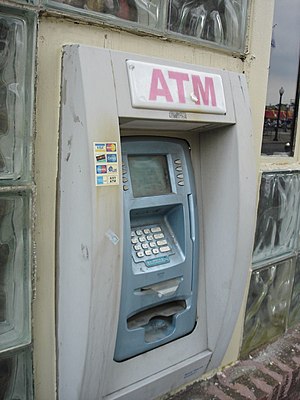
Before I went to Europe for my back packing trip I needed to decide how to deal with money. How I would carry it. How much I would carry. How I would withdraw it. Before I left, I was well aware of the rampant pick pocketing in touristy European cities. I wanted to be prepared for anything.
Because of the pick pocketing issues, Radio-frequency identification (RFID) neck wallets are very popular. RFID is a type of technology that allows people to scan items such as your passport, or credit cards through ordinary wallets, and attain your personal information. This allows for the modern thief to easily steal your money or your identity without even touching you. The RFID wallets contain a protective shield that prevents a scanner from reading your information. These scanners can be hidden near ATMs, train ticket machines, or just held by an individual in a crowded area. Be sure to protect your identity with an RFID wallet.
Neck wallets, although dorky, are great for keeping your money close to your body. They are thin, usually tan colored and slip underneath your shirt so they are hardly noticeable. These are used so your cash, credit card and passport are always on your body.
When I flew to Europe I brought $50 USD in case I needed cash at the airport. I did not exchange this money when I got to Europe. Instead I hid it in a safe spot for when I would be returning home.
I did bring a debit card to Europe. My bank (FirstBank) charged me 2% for every withdraw I made at an international ATM. There are many travel credit cards that offer no foreign transaction fees. Nerdwallet.com offers a list of these cards.
When I arrived in Prague I withdrew the equivalent of $200 USD. For the rest of my trip I would withdraw cash from an ATM I would run out. Many places I visited would not accept credit cards or would charge a large fee if a card was used. Cashed seemed to be the best option.
HELPFUL HINTS: Because I used cash, some places thought they would be tricky and rip me off when I was given change! Be sure to count what teller gives you. It isn’t rude, it’s just smart. Also, you can barter with street vendors! Most things I was able to barter down to at least half the price they were originally asking.





